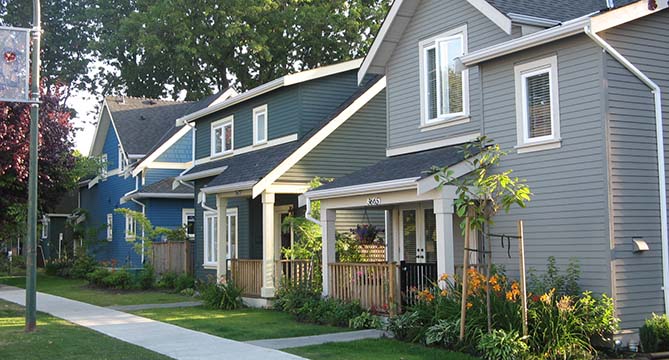
As part of our Climate Emergency Action Plan, we are engaging residents on ways to help reduce carbon pollution from Vancouver’s detached houses, and make these homes more resilient to extreme weather.
Nearly 60% of Vancouver’s carbon pollution comes from burning natural gas to heat buildings and hot water. The existing 98,000 detached houses generate about 30% of these emissions, which contribute to climate change, air pollution, and impacts our health and environment.
The Climate Emergency: Home Heating and Cooling program is seeking feedback from residents on proposed regulations to shift detached homes to renewable energy that produce fewer carbon emissions.
Proposed regulations
- Furnaces and hot water tanks to be replaced with more energy efficient equipment, or use renewable energy, when they reach their natural end-of-life
- Major home renovations would require additional energy efficiency improvements
One example is shifting to electric heat pumps, which use renewable hydroelectricity to both heat and cool a home. Heat pumps are the most energy-efficient system currently available. They significantly reduce emissions and can filter air to reduce respiratory impacts from pollution and wildfire smoke.
More about the program
The Home Heating and Cooling program highlights resources and financial supports that are available to residents in making these changes, including energy coaching and up to $12,000 in rebates for electric heat pumps. Our goal is to cut carbon pollution from buildings in half by 2030, compared to 2007 levels.
Vancouver residents are invited to learn more, attend a workshop, and provide input via an online guided feedback form, which is available on Shape Your City until the end of February.